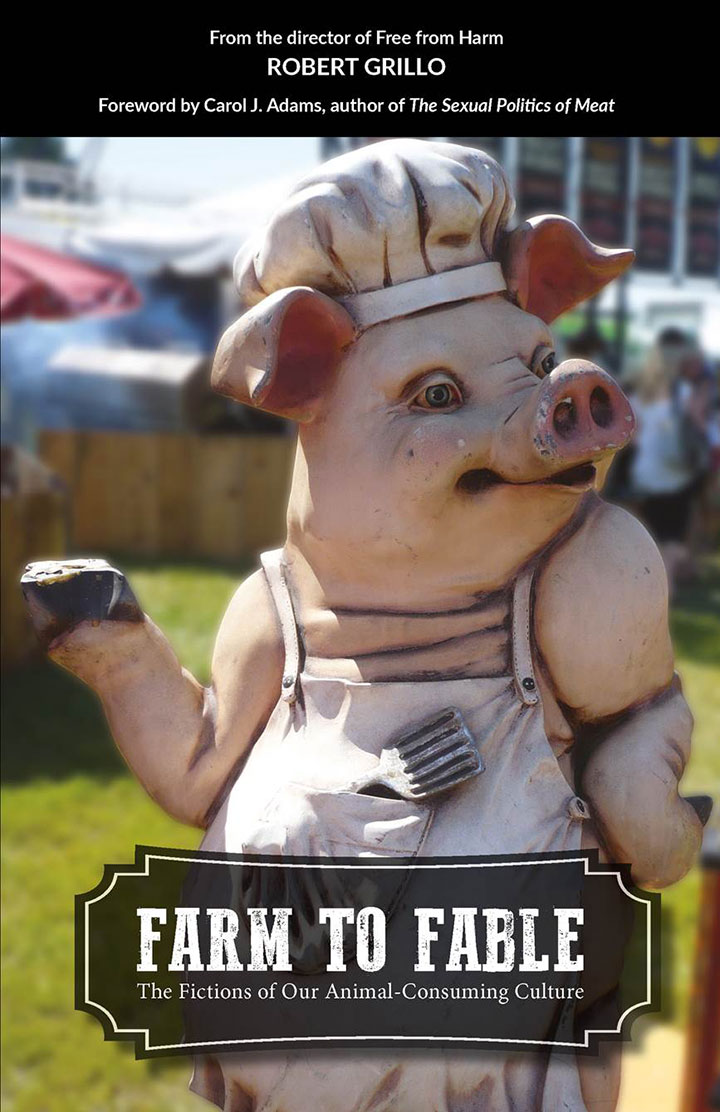“Chickens in the trucks are for food so you don’t think about them.”As for the invisibility of the animals: here on the rural Eastern Shore of Virginia where I live, for example, you cannot not see the truckloads of chickens going up and down the roads to slaughter every day, but as one person told me after meeting a chicken rescued from the poultry industry at our sanctuary – a person who has her own pet chickens – you just accept, she said, that the chickens in the trucks are for food so you don’t think about them. Throughout history there have been vegetarians and vegans, but we are at a point in Western culture where the entire enterprise of animal farming has begun to affect social consciousness as a problem. There is no way to fit the foot of Anastasia or Drizella into Cinderella’s glass slipper. No way to produce zillions of land and water animals annually for human consumption without the industrial model; no way to industrialize animals humanely or sustainably. Some folks are starting to grasp this fact, and if it matters to them they will likely become vegetarians or vegans, or else they will look for ways to have it both ways by opting for green-washing, “the fiction that raising animals for food, even when compared to raising plants for food, can be done sustainably,” and humane-washing, “animal agriculture’s key strategy to intercept the conversation and deflect it away from veganism and retain consumers by using a sophisticated set of marketing fictions.” Grillo in discussing green-washing and other fictions recounts the claims embedded in each and refutes them one by one. For example, there is not enough arable land and water on the planet to sustain the number of small farms and free-ranging animals that would have to exist in order to supply meat, milk and eggs to 7 billion-plus human beings. It isn’t only the Temple Grandin brand of humane factory-farming fiction, or the Michael Pollan brand of humane Do-It-Yourself fiction that Grillo deconstructs; conventional animal welfare societies contribute to the delusion that we can devour animals endlessly, abundantly, sustainably, and humanely without “factory farming,” a consummate falsehood. “Farm to Fable reaches beyond the fabrications of mainstream consumerism and seductive advertising”
For example, animal advocates have been criticized that our concern for animals is a privileged white people’s “first-world concern,” but as Grillo points out, “many other social justice issues have their roots in the first world too, like justice for sweatshop laborers, battered women, and date rape victims; gay rights and gay marriage; hate crime; bullying; and equal pay for women. But notice how advocates for these causes are never criticized as ‘first world.’ On the contrary, they are often lauded for their brave work to expose and fight against these injustices.” “Leveraging Truth to Fight Fictions”Farm to Fable concludes with a chapter on Leveraging Truth to Fight Fictions. I believe every animal advocate can benefit from this chapter. If you are a passionate advocate who winces when a colleague challenges: “Do you want results or do you want to be right?” this book is for you and for all of us. We may disagree with some of Robert Grillo’s views, but we need to be conscious of our reasons for what we think and do in order to act constructively for animals, whose only hope of relief from us as a species is with those of us who are fighting for them.
A question I have is whether we can realistically lump together farmers who raise and slaughter animals, and have done so for generations, with consumers
who know farmed animals only as pieces of meat along with people who were once vegetarians or were not experienced in killing, but are now enthusiastic
Do-It-Yourself slaughterers. Can we really lump together the majority of consumers of animal products as being “in denial”? This seems to me to
be a handy but not very helpful explanation of what animals are up against, being too broad, basic and abstract to make sense of it all.
Comments are welcomed on Animals 24-7.
Karen Davis, PhD is the President and Founder of United Poultry Concerns, a nonprofit organization that promotes the compassionate and respectful treatment of domestic fowl. Her books include Prisoned Chickens, Poisoned Eggs: An Inside Look at the Modern Poultry Industry; More Than a Meal: The Turkey in History, Myth, Ritual, and Reality; and The Holocaust and the Henmaid’s Tale: A Case for Comparing Atrocities. Award-winningly profiled in The Washington Post, and the author of many published articles and book chapters, most recently in Meat Culture | Brill (2016), Karen maintains a sanctuary for chickens in Virginia and was inducted into the U.S. Animal Rights Hall of Fame in 2002 for “outstanding contributions to animal liberation.” UPC President Karen Davis's Bio
|
|


